While members of a generation will never all share the same values, certain trends do tend to emerge because of shared experiences and culture. Millennials have a pretty unique history as both the unluckiest generation and somehow also the most optimistic. And we've also had experiences at work that shape how we get things done and how we lead.

So we asked millennials in the BuzzFeed Community to share things they're doing differently than bosses they've had in the past. Here's what they had to say:
1. "I absolutely refuse to micromanage your time. My orientation for every single person on my team has the same talk. 'Work when you need to. Take time when you need to. Just make sure your work is done on time. I don’t need a rundown of your schedule. If I have to manage your schedule, you can’t be on my team.'"
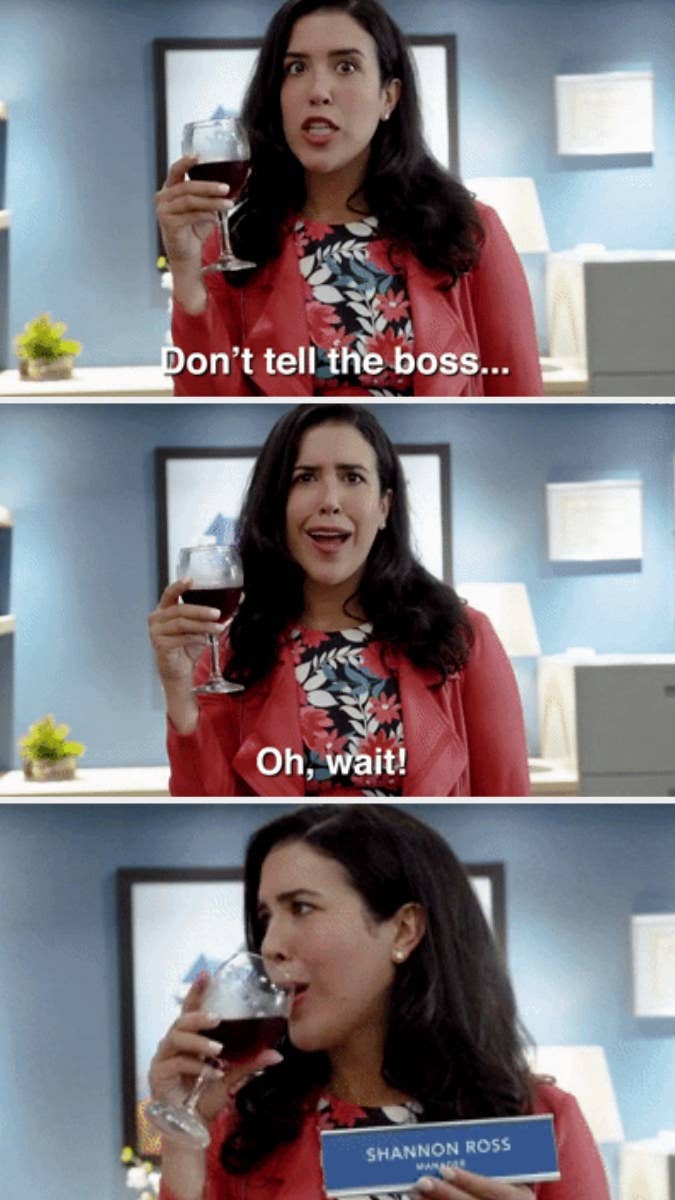
2. "I'm making sure my employees know that I am more concerned with their well-being, happiness, and them overall then I am with some corporate boss we have never met and who doesn't know our names."
—Rebecca, 26
3. "The days of never calling in sick or taking a day of vacation are OVER. I encourage my employees to use their PTO, and I tell all new employees I’ll never reject a PTO request. It’s time you literally work for — USE IT."
"I also encourage my employees to seek opportunities for advancement. I’ve had managers try to talk me out of applying for roles that would advance my career so I wouldn’t leave them with an opening. If one of my employees wants to go for something, I want to make sure I’m not the one standing in their way and always offer support. People leave jobs. If I’m not prepared for that, I’m not doing my job."
4. "My biggest one is work-life balance. Whenever I have someone on my team tell me they’re taking a vacation, my first response is, 'Awesome!' If they’re taking a day off, I never do the subtle 'guilt-prying' that I used to get all the time from other bosses/companies. I just say a simple acknowledgment like, 'Cool' or, 'Sounds good.' No one should ever feel guilty for taking time off!"
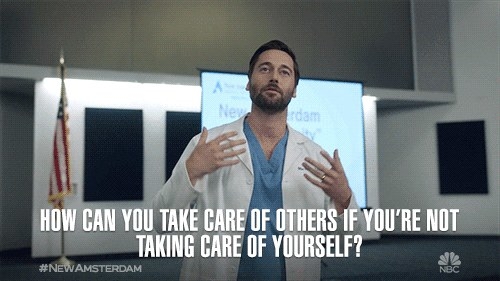
5. "Early in my career, I always felt like I had to be perfect for my boomer bosses (knowing everything, no weaknesses, being on call 24/7), because that was how I saw them show up. When I first became a leader, a mentor told me, 'It's okay for your staff to see you vulnerable sometimes.' I've tried to lead by being a person first: not forgetting boundaries or putting my shit on my staff, but being willing to admit when I don't know something, acknowledging that I'm tired, saying that I made a mistake and I'm sorry. My team trusts me enough to do the same, and we're stronger together as a result."
—Leigh, 40
"One of the most important things to me is to give people the opportunity to fail as a part of growth. I had so many managers who basically expected perfection on the first try. I don’t want to create that culture in my department."
—Erika, 30
6. "I always encourage open communication because I never felt like I could be open and honest with my then-supervisors when I was rising through the ranks. In my mind, a leader should — without judgment — make sure you have the resources and time you need to do your job effectively, and open communication is the way to make that happen."
"Having a bad day? Vent, and let me see if I can help you. Need a mental health day? Take it, no apology needed. Feeling sick? You don't need to justify the reason to me; take the time you need to get well. Someone else on staff giving you a hard time? Tell me, and I will take care of it. Workload is drowning you? Let's figure out how I can take some things off your plate.
We're all part of the same team, and we're all human beings. I may be your supervisor, but I've been where you are, and I get it! I totally get it! I will never treat my staff the way I have been treated under some supervisors."
7. "My former manager found me playing Candy Crush at my computer once (mind you, I was on my 10-minute break). She went and told my boss and made a big stink. My boss semi-scolded me. He honestly seemed more upset that the former manager made a stink about it. I feel like he only talked to me to appease her."

8. "I work in nonprofit communications, and my previous bosses didn’t know what I actually did or what went into my day-to-day tasks. I got used to being a team of one with no direction and very little help. Now, I take the time to understand my team’s jobs so I can set them up for success and be a resource if they need it. I want it to mean something when I say 'good job' — because I know how much effort goes into these things!"
9. "Gatekeeping everything. Treating new people and those below you like crap because you got treated like crap when you were in their position and it’s just 'part of the job.' No, I’m sorry that you had to put up with that, but we do not need to create generations of trauma in the workplace. It stops with me."
10. "When I was in my 20s, I had two bosses at two different jobs coach me on how to tolerate sexual harassment while at work. (Both of these bosses were women BTW — I see you, Aunt Lydia.) One of these instances had to do with a customer who repeatedly would come into the store, find me stocking shelves, and tell me the disgusting things he wanted to do me if we were alone. It was beyond degrading and dehumanizing."
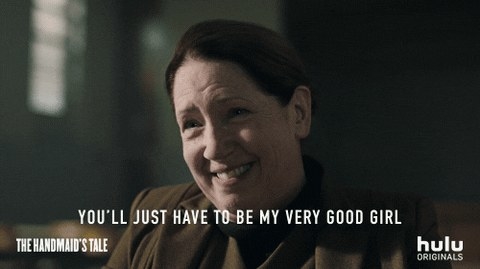
11. "My former (older) boss would say, 'Ah, but you are young, and so are your ideas,' whenever I tried to put my two cents in. This is a form of bullying and age discrimination that I will never repeat. I had a younger staff member who often came up with ideas, during our meetings, and instead of looking down my nose at her, I would instead ask her to give us an example of how her solution would work within the confines of the project."
Kristin, 33
12. "Old-school managers, at least in my field, promote staff based on vague, opaque criteria. It gives the message of, 'Work hard, and if I notice I’ll randomly decide to promote you.' That approach is so quickly mired in bias, because if shy or modest employees don’t know how to communicate their wins, they’re more easily looked over for development opportunities or promotions."
"With my team, I communicate almost monthly about the criteria used to determine raises and promotions, I ask them how they’re progressing on those metrics (instead of assuming I already know), and if they need additional support to develop their skills. There is no guesswork in it, and no room for me to play inadvertent favorites."
Fiona, 34
13. "My manager in my first professional job was a huge micromanager. Outside of needing to know what I was doing every 25 minutes or so, he dissected everything about my personal life. He once took myself and another coworker aside to discuss 'our drinking and how it affects the business.' We had all attended another coworkers wedding the Saturday prior (this fun chat occurred on a Monday morning). He asked why we thought drinking so much was appropriate, and proceeded to show us THE NAPKIN HE HAD BEEN TALLYING OUR DRINKS ON."
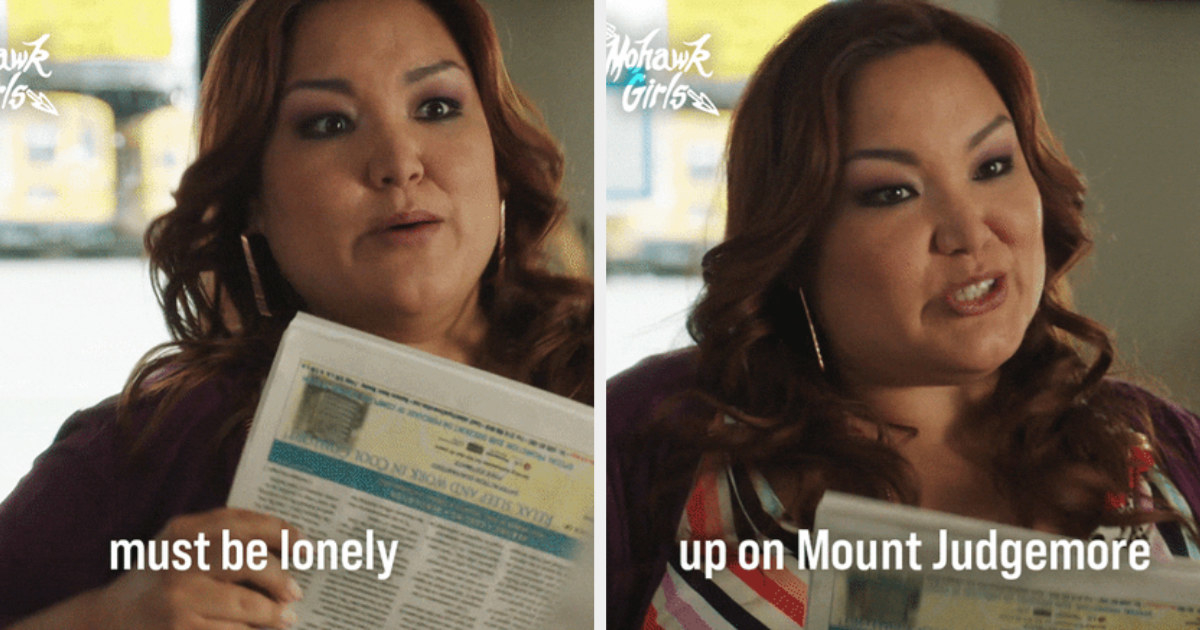
14. "I’m a teacher. In my first year, I had an awful mentor. She used to rip apart everything I did. She was completely unapproachable and would turn up in my classroom unannounced and just stand there. I went from being graded 'outstanding' in training to 'cause for concern' according to her. Then I moved schools and was 'outstanding' in my first observation. Years later, I train students and first-year teachers. Even if they deliver an awful lesson, I won’t tear them down. I’ll help them make it better."
15. "I will always support and encourage career development and advancement for anyone I manage. I had a manager who told me not to ask for a raise, so I can 'fly below the radar' and not be on the chopping block for layoffs. It was insulting, and I was severely underpaid at the time. She also was angry when I resigned for a better position and more money at another agency."
—Jess, 39
16. "'The customer is always right.' Absolutely fucking not. I worked in an uppity restaurant for years where my managers were constantly throwing me under the bus so the customer wouldn’t feel slighted. The customer would be unreasonable, I’d do *everything* I could to fix it, they’d leave me no tip even if it wasn’t my fault, insult me, and my managers would almost trip over themselves trying to make sure the customer would come back (coupons, free appetizers, comp’d drinks, etc.) while I went home broke after working my ass off for some entitled asshole."

17. "I will NOT contact my employees outside of work hours and have requested the same of them. Unless I have to tell them we are closing for some particular reason, I will only contact them between business hours on their work phones. Everyone deserves a healthy work-life balance and to not be bothered by their boss when they aren't getting paid outside of business hours."
18. "In the first few months of my nursing career, I made an error in documentation. No harm was done to the patient, and it was easily corrected. My boss at the time brought me to her office and told me if I ever made a mistake again she’d 'rip my balls off.' I spent the next two years in a state of anxiety that I could make a mistake and my world would crumble. No one should live like that; fear brings out the worst in people and makes discussing mistakes and opportunities to improve impossible."
"I promised myself that as a leader I’d be open and work through errors to prevent them from happening and improve processes. We’re human; errors happen. We have to work through them and support each other.
To this day whenever an issue arises I think of my first mistake, remind myself how scary it can be, and how much worse it is when you have a bad boss. This keeps me level-headed when I’m working with my team."
19. "I had a manager who constantly felt the need to advise me on my apparel. Remarks about how people would take me more seriously if I dressed 'professionally,' with suggestions about dresses and two-piece suits that always included a skirt. I love a blazer, nice sweater, or a blouse, but I’m not a dresses- and skirts-wearing woman. It always came off old-fashioned and weird to have a man try to tell me what to wear."

20. "Something I used to hate at some of my previous jobs was how management acted like their employees were just tools for them to use. They'd make changes and decisions that affected my job, but wouldn't bother to get our input, wouldn't explain why there was a change, and often wouldn't even bother to let us know."
"I want my employees to know that their work is appreciated and that a large part of my job is helping them to do it with as little stress or frustration as possible. I act as their advocate when management is making decisions, ask for their input regularly, and do my best to keep them updated, especially for things that directly affect them.
Now, sometimes they come to be with some petty stuff, but that's okay. It means they will come to me with the important stuff and aren't going to be stewing over things and feeling like no one cares if they're happy with the way things are going or not."
21. "I was subordinate to the worst boss for 10 years. Even though I left the job six years ago, the crap I went through still colors over how I work today. I went to therapy over it. Just because it took place in the workplace, rather than my personal life, doesn't mean it's not abuse. I work hard to comport myself as a supervisor the exact opposite of the way my old boss behaved."
"Train employees; trust employees. Don't use their mistakes as a reason to attack and belittle; make it a learning opportunity. Don't assign blame but identify the source of the issue and find solutions so it doesn't happen again. Be a leader, not a tyrant. Be collaborative, not competitive. You can be firm without being ugly. You can be respected by being a good example rather than ruling by manipulation and fear. Don't be a fucking asshole to your employees. They are people, not machines."
22. "Expectations conversations. How can you succeed when you don’t know the expectations? That is also a two-way street. When I have those with my new team members, I make sure to let them know that feedback is important for both of us. If they don’t understand what I’m asking or don’t like my approach, they 100% need to let me know. If your work ethic is solid, I’ll have your back."
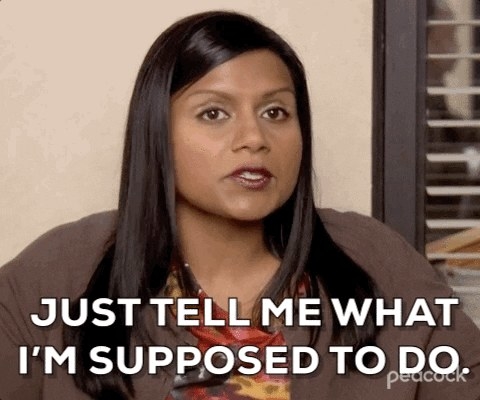
23. "So. Many. Things. The top are to actually believe someone when they tell you they are sick. If COVID taught us anything, it’s to NOT come to work sick. I had so many bosses that would bully or guilt trip staff into coming in when they were sick. I try to lead with trusting my team first. I have had some 'boy who cried wolf' instances from time to time, but overall trusting my staff is the most beneficial."
"The other thing is to be transparent. I have hated when managers say stuff like 'we are changing this just because.' If I can explain the reasons why we are doing something or changing something I always will."
24. "I do strictly supervise sometimes when it’s busy enough to need a manager redlining tasks, but I never ask anyone to do something that I wouldn’t do. I do all tasks that everyone else does and usually include myself on action plans for work to be done if I have time. I’ve known bosses that refused to do anything except their manager duties and supervising the team. It really did make people despise them, and it was bad for morale."
25. And finally, "I don't guilt anyone who finds a different job, whether it's for more pay or a better schedule. I congratulate them and make sure any PTO is paid out before they leave. This has caused everyone who has moved on to give notice. They don't just disappear, and no call no show."

What have you noticed about your millennial boss? Tell me about their management style in the comments.
Note: Responses have been edited for length and/or clarity.
